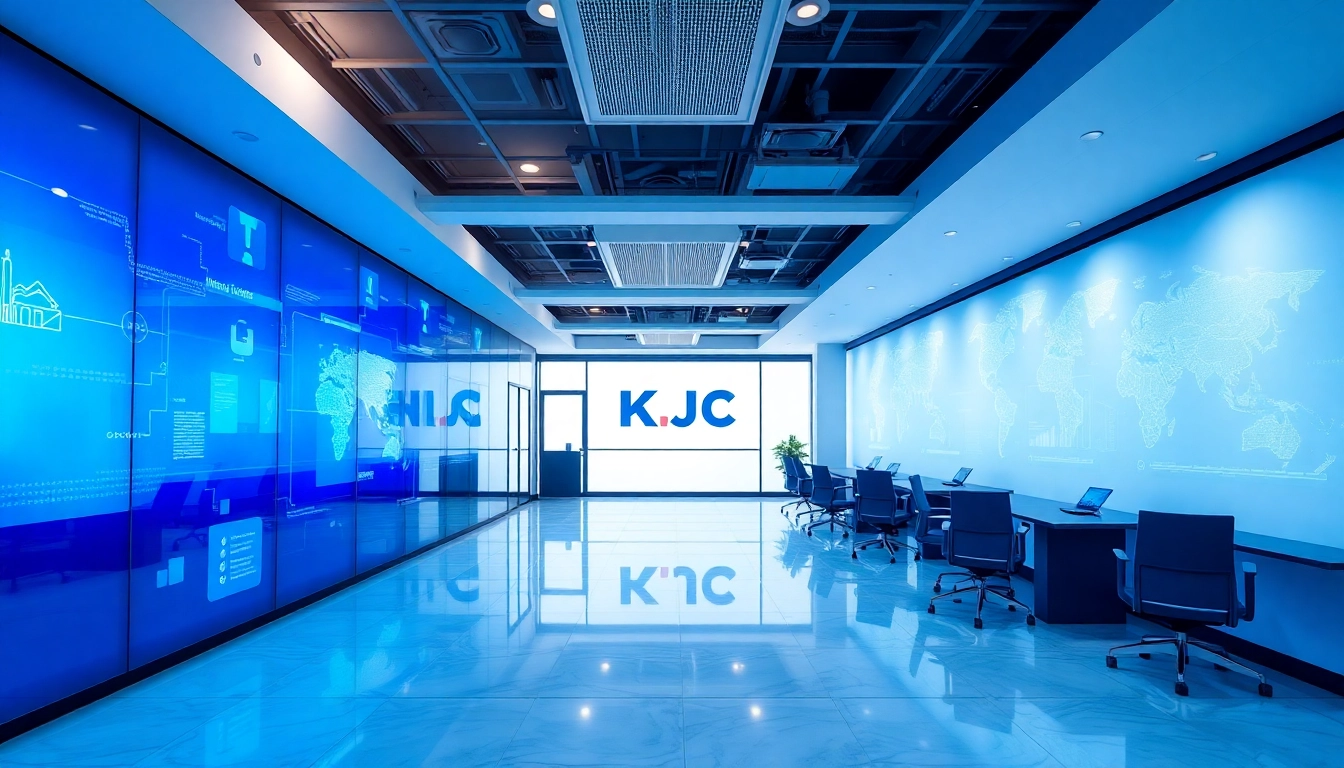Introduction to Naver: South Korea’s Digital Gateway
In the rapidly evolving landscape of global technology, few platforms have established as profound a footprint in their home country as naver. As South Korea’s premier online ecosystem, Naver has transitioned from a simple search engine to a comprehensive digital platform that influences daily life, business, and innovation in Korea. Launched in June 1999 by Lee Hae-jin and operated by Naver Corporation, this portal has become a vital gateway for billions of users seeking information, communication, entertainment, and commerce. Understanding Naver’s unique development, services, and strategic growth offers valuable insights into how regional tech giants shape their markets and push toward global expansion.
Historical Development and Founding Principles
Naver was conceived during the internet boom of the late 1990s, a period marked by rapid digital adoption worldwide. From its inception on June 2, 1999, Naver’s core mission was to create a user-centric online environment tailored specifically to South Korean cultural and linguistic needs. Unlike Western search engines, Naver prioritized local relevance, integrating Korean language processing technologies, community features, and localized content. Early on, it introduced the concept of a portal that combined search with news, blogs, and community services, fostering a holistic platform that promotes active user engagement.
The company’s founding principles centered on innovation, user convenience, and building a digital ecosystem that adapts to Korea’s unique online habits. Naver understood that its success depended on contextual relevance—whether it was delivering localized news, shopping options, or entertainment, the platform was designed to be intuitive and responsive to Korean users’ preferences.
Over the years, Naver has consistently invested in R&D, making it a pioneer in AI research, natural language processing, and big data analytics—core components that have fueled its continuous growth and diversification.
Core Services and Product Offerings
Search Engine Technology and Local Relevance
At the heart of Naver’s ecosystem lies its proprietary search engine, engineered to prioritize local content and Korean language queries. Unlike global giants that often struggle with language-specific nuances, Naver’s technology incorporates advanced NLP (Natural Language Processing) tailored to Korean, enabling highly accurate search results. Its algorithms factor in local trends, popular content, and regional interest to deliver highly relevant outcomes. This focus on cultural and linguistic alignment has cemented Naver’s dominance in South Korea’s search market, holding a significant share over international competitors like Google.
Engagement with Mobile Apps and Integrations
Recognizing the mobile-first nature of modern users, Naver offers a suite of highly optimized mobile applications. Naver app, featuring real-time news, weather, search, and multimedia content, has over millions of downloads, seamlessly integrating with other services like Naver Maps and Naver Webtoon. These apps leverage AI and contextual data to personalize user experiences, ensuring engagement stays high across diverse content types. The integration of services via a single sign-on creates a cohesive ecosystem that keeps users within Naver’s universe.
Additional Platforms: Blogs, Maps, and Payment Systems
Beyond search, Naver’s platform encompasses vibrant user-generated content sites such as Naver Blog and Webtoon, fostering community interaction and creative expression. Its mapping service, Naver Map, offers accurate navigation and real-time traffic updates, vital for daily commuting and travel planning. Naver Pay, a mobile payment system, exemplifies how Naver is blending e-commerce with financial technology, allowing seamless transactions for shopping, bill payments, and more within its ecosystem.
Strategies for Business Growth and Competition
Adapting to Increasing Digital Demands in Korea
Naver has demonstrated agility by continuously evolving its services to meet the rising expectations of Korean consumers. Its content strategies focus on personalization and localized content—be it news, shopping, or entertainment—making each user experience uniquely tailored. Additionally, the company leverages data analytics to anticipate trends and customize advertising, driving revenue growth.
Innovation Through AI and Machine Learning
As AI becomes a central driver of digital transformation, Naver invests heavily in R&D to maintain its competitive edge. Its AI services power search enhancements, smart recommendations, chatbots, and even autonomous driving research through Naver Labs. This technological leadership fuels product differentiation and opens avenues for expanding into emerging fields like AI-powered healthcare or robotics.
Partnerships and Expansion Initiatives
Strategic collaborations with global and regional partners bolster Naver’s reach. It has formed alliances with e-commerce platforms, telecom providers, and content creators to extend its influence. International expansion efforts include localized versions of services and investments in AI research centers abroad, aiming for a broader footprint in Asia and beyond.
User Engagement and Community Building
Personalized Content and Recommendation Systems
Naver’s sophisticated AI-driven recommendation algorithms analyze user behavior, preferences, and interactions to deliver hyper-personalized content feeds. This approach enhances user retention, increases time spent on the platform, and boosts ad revenues. For example, its Webtoon service offers personalized comic suggestions based on user reading history, fostering continuous engagement.
Community Features Like Webtoons and Blogs
Naver Webtoon stands out as a global leader in digital comics, providing a platform for creators and fans to share and discover content. Its community-building features facilitate social interaction, feedback, and content curation, making it an essential cultural element. Similarly, blogs foster user-driven content, community discussions, and niche interests, all contributing to a vibrant digital society.
Mobile Experience and App Optimization
Naver’s mobile apps are meticulously optimized to ensure fast performance, ease of use, and seamless integration across services. Its interface emphasizes simplicity and visual appeal, encouraging daily engagement. Continuous updates incorporate user feedback and technological advances, securing Naver’s position as a mobile-first powerhouse.
Future Trends and Naver’s Vision
Upcoming Technological Developments
Naver aims to pioneer next-generation AI applications, including conversational AI, augmented reality, and advanced data analytics. Investments in Naver Labs are directed toward creating smarter search engines, autonomous vehicle technologies, and even intelligent home devices, aligning with broader digital transformation trends.
Sustainable Growth and Global Outreach
While dominating domestically, Naver is actively seeking global markets, especially in Asia, by localizing content and forming regional partnerships. Its vision includes expanding its digital ecosystem to serve diverse cultures while maintaining sustainable growth focused on innovation, ethical AI deployment, and corporate social responsibility.
Enhancing User Privacy and Data Security
As data privacy concerns grow worldwide, Naver emphasizes strengthening security measures and transparency. It adopts privacy-first policies, complies with international standards, and invests in security infrastructure to build user trust and meet evolving legal frameworks.














